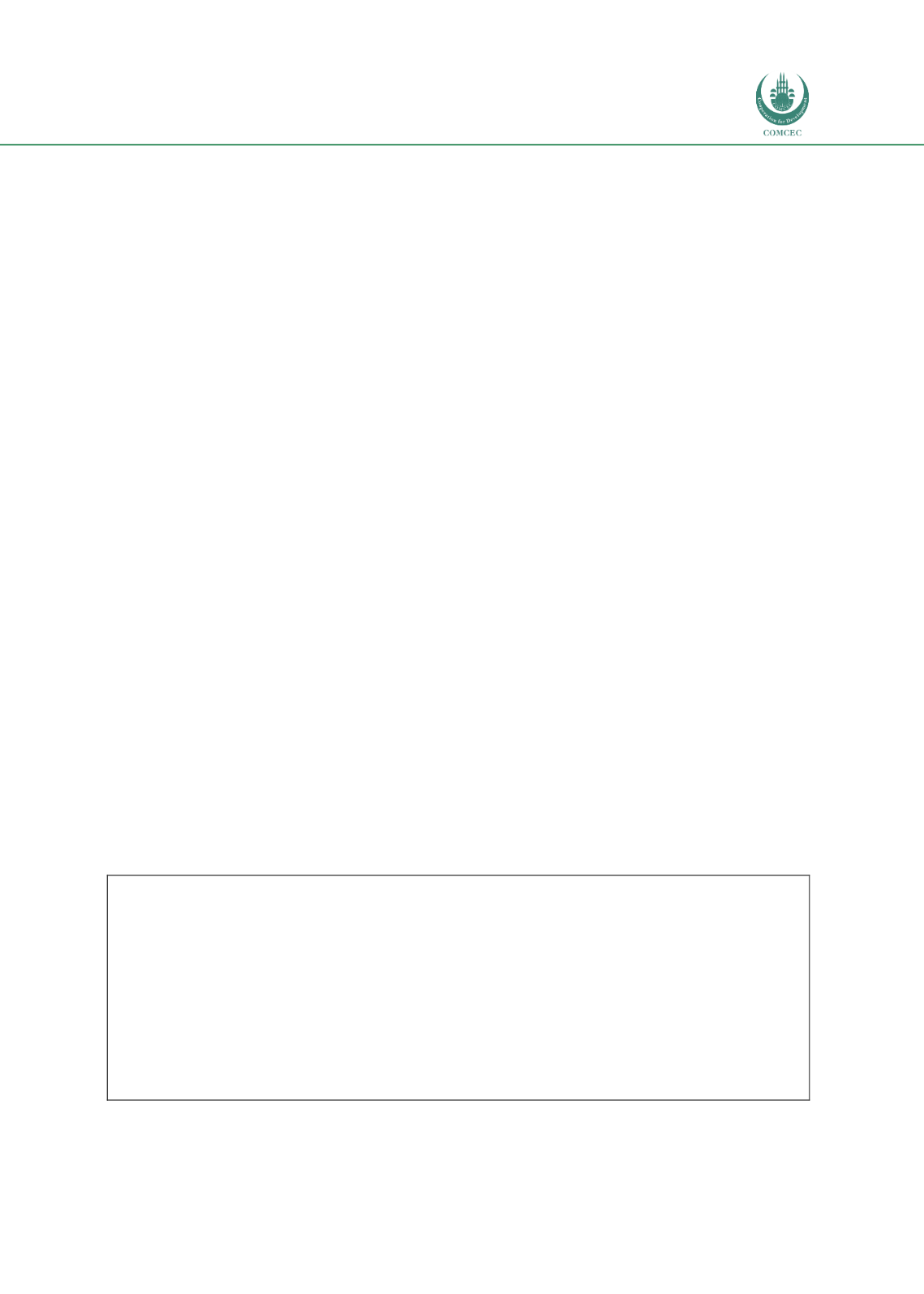

The Role of Sukuk in Islamic Capital Markets
43
3.2.4 DEVELOPMENT OF A SUSTAINABLE SUPPLY OF CORPORATE SUKUK
Several benefits accrue to an issuer (government and corporate sector) of sukuk, including the
following:
1.
Diversification of financing sources as a risk–mitigation measure.
2.
The base of Shariah-compliant investors remains largely untapped, with significant
demand for products such as sukuk, which lacks in supply.
3.
The potential to achieve competitive financing cost due to a larger investor base.
Sukuk can be purchased by both Islamic and conventional investors, but Islamic
investors are restricted to only investing in Shariah-complaint instruments.
4.
Capital-market instruments provide the necessary avenue to enter mainstream
international markets and to access the liquidity of foreign investors.
Based on our analysis, the performance of the corporate sector (which includes quasi-
government issuances) remains the best yardstick in tracking the pulse of a local sukuk
market. Hence the key to building a sustainable supply of private sector sukuk is to create a
sovereign benchmark yield curve for corporate issuers.
The governments in core sukuk markets such as Malaysia, Bahrain, the UAE and Qatar have
successfully tapped the ICM through LCY and FCY sukuk. This has helped set the necessary
benchmark yield curve for corporate issuance. As a result, Malaysia, the UAE and Qatar have
boosted the world’s most active corporate sector with sukuk issuances across various sectors
(e.g. financial institutions, infrastructure and utilities, construction, property).
Indonesia, despite being one of the largest sovereign sukuk issuers, has yet to create a
sustainable supply of corporate sukuk. Macroeconomic factors (e.g. a volatile local currency
and a high inflation rate) and the ”crowding-out effect” (as defined in Box 3.5) of public-sector
issuance are the principal reasons local companies prefer conventional FCY bonds in meeting
their financing needs. On the flip side, Saudi Arabia has a strong pipeline of corporate sukuk
issuers despite lacking sovereign sukuk benchmarks. Saudi Arabia only raised its inaugural
USD9.0 billion international sukuk in April 2017, followed by the debut of its SAR17.0 billion
domestic sukuk in July 2017.
Box 3.5: Crowding Out and Crowding In
The neoclassical “crowding out” theory suggests that under certain conditions, an increase in government
bond issuance will transfer a portion of investments away from private enterprises and towards financing
public debt. This is because a surge in government issuance can inflate interest rates – increasing borrowing
costs for the private sector and making sovereign debt more attractive than even corporate high-yield issues.
This effect can be exacerbated by shallow financial markets and reduced reliance on bank lending for
corporates. A high amount of external government debt could also deter foreign credit from the private
sector in that country, due to a heightened vulnerability to a sovereign debt crisis.
The Keynesian “crowding in” theory proposes instead that government debt, if incurred to stimulate the
economy, will support investment in private enterprises, e.g. improving investor confidence. Specifically,
regular and standardized issuance of government debt can play a key role in the development of corporate
bond markets. In emerging economies, robust government bond markets can encourage and mobilise an
investor base that can be tapped by corporate bond issuers.
Source: Tendulkar & Hancock (2014)
















